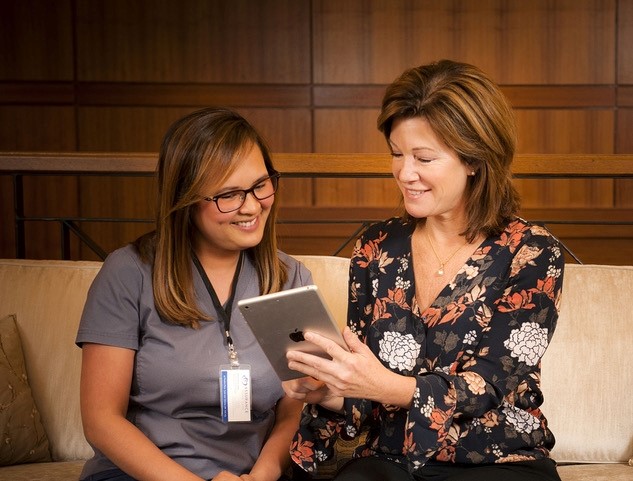Caregiving is a rewarding role, whether it’s looking after a loved one or working professionally. As a caregiver, you can make a meaningful difference in someone’s life. But, it’s not all warm moments and gratitude. Caregiving also comes with its fair share of stress, emotional pressure, and physical exhaustion. If you’ve ever felt stretched thin, you’re not alone. Managing stress, recognizing burnout, and prioritizing self-care are essential for you and the people for whom you care.
Guest article by Stephen Bleeker
Stress vs. Burnout in Caregiving
Caregiver stress is a natural response when you’re losing sleep, skipping meals, or feeling irritable over things that wouldn’t normally bother you. These are signs that your emotional reserves are running low. Burnout, however, is when stress is left unchecked for too long. You may feel emotionally drained, detached, or simply go through the motions. Burnout can even cause physical symptoms like chronic fatigue, headaches, or weakened immunity. If any of this sounds familiar, don’t ignore the symptoms. Burnout isn’t something you can push through. It’s your body and mind waving a red flag, urging you to pause and recalibrate.

The Path Forward: Prioritizing Emotional Well-Being
Here’s the thing about caregiving: You can’t pour from an empty cup. Taking time for yourself isn’t a luxury; it’s a necessity. Yet, many caregivers struggle with guilt when they put their needs first.
It’s easy to think, “If I’m not doing it, who will?” or “They need me more than I need a break.” But the truth is, when you neglect your well-being, your ability to care for others diminishes. Self-care isn’t about indulging; it’s about ensuring you have the energy, patience, and emotional stability to keep going.
Practical Ways to Manage Stress
It’s easy enough to acknowledge stress, but having pragmatic ways to manage stress is vital. So, how can you start prioritizing your emotional health while still meeting the demands of caregiving? It starts with small, intentional actions.
- Build your support system: You don’t have to do this alone. Whether asking family members to share responsibilities, connecting with caregiver support groups, or hiring professional help, leaning on others can lighten the load. Even a quick chat with someone who understands can be incredibly validating. If you work for a caregiving company, inquire about services they offer for employees, like EAPs or mental health support.
- Establish Boundaries: It’s okay to say no. Establishing boundaries means protecting your ability to show up for your loved one or client long-term. Communicate your limits kindly but firmly, either with your family or employer.
- Seek Professional Support: If you’re caring for a loved one, sometimes, the best thing you can do is bring in reinforcements. Respite care, counselling, or live-in caregiving options can provide relief, allowing you to recharge while ensuring your loved one is well cared for. If you’re a professional, lean on your employer for help.
Caregiving is one of the most selfless and meaningful roles you can take on, but it’s also one of the toughest. Feeling stressed or burned out doesn’t mean you’re failing—it means you’re human. The best way to keep showing up for the people you care for is to take care of yourself.
Lean on your support system, set boundaries that protect your time and energy, and don’t hesitate to ask for help when you need it. Remember, self-care isn’t selfish—it’s what keeps you going. You can’t give your best to others if you’re running on empty. By prioritizing your own well-being, you’re not just helping yourself—you’re making sure you can keep being there for the people who rely on you. You’ve got this.
 Stephen Bleeker, CEO and founder of Assurance Home Care, is redefining care for older adults by supporting aging in place with personalized compassionate services. His innovative approach and focus on customer experience have consistently delivered exceptional outcomes, transforming how care is delivered and enhancing the quality of life for older adults.
Stephen Bleeker, CEO and founder of Assurance Home Care, is redefining care for older adults by supporting aging in place with personalized compassionate services. His innovative approach and focus on customer experience have consistently delivered exceptional outcomes, transforming how care is delivered and enhancing the quality of life for older adults.
[TCV Ed: There are times when we can learn how to be better caregivers from those for whom we provide care. For example, in this gently humorous yet factual article, this orange tabby feline diagnosed with FIV and leukemia, taught Brenda Avadian to be a better caregiver.]








